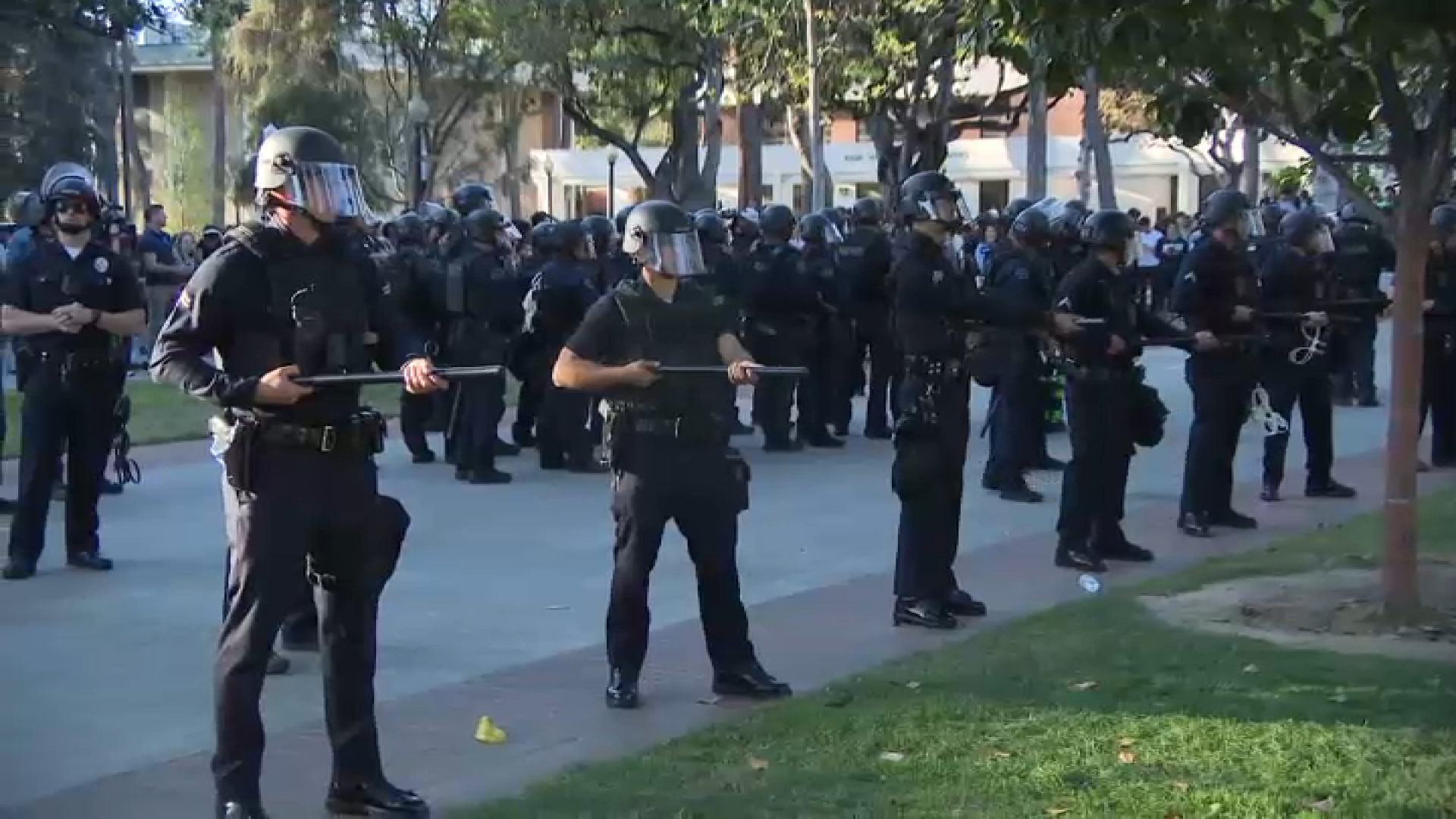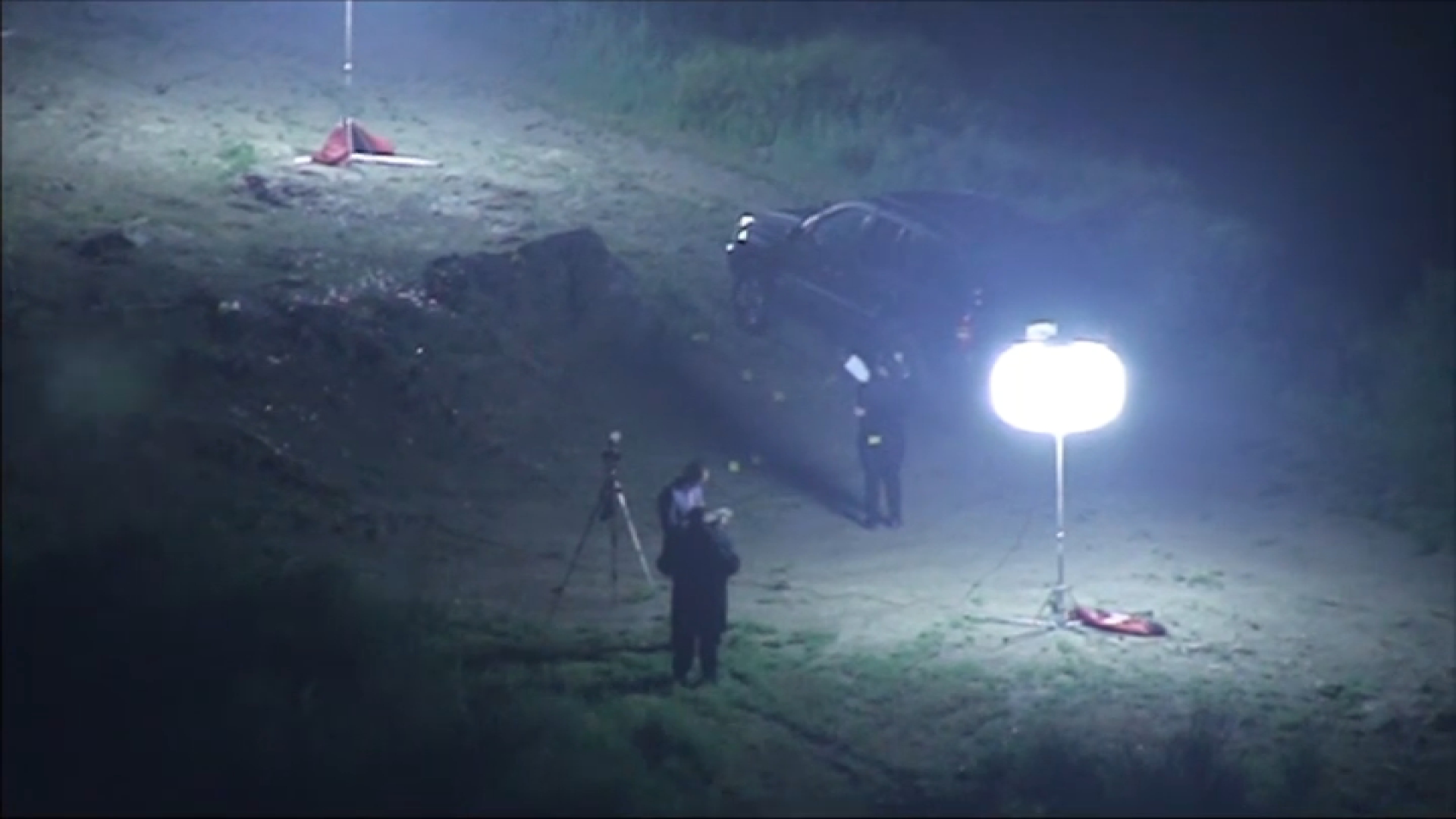The specter of "ghost" police cars, allegedly invented to pad LAPD deployment records, triggered questions from the department's civilian commission about pressures being put on station commanders to meet department goals.
A report released Friday by the independent Inspector General found that LAPD personnel preparing internal reports at five stations were "overreporting...the number of officers or police cars on patrol and available to respond to calls for service."
The report did not identify which stations, but offered examples of officers being assigned to a field patrol unit, only to serve the remainder of shift doing in-station duties.
"It's possible mistakes were made," acknowledged Earl Paysinger, LAPD's assistant chief for operations. But Paysinger told the police commission Tuesday he found no evidence of any deliberate deception, and offered possible explanations for the report's examples.
Since 1988, the department has used formulas for determining patrol levels, and in assigning resources, station commanders have been expected to meet those goals.
Chief Charlie Beck emphasized to commissioners that patrol is but one of the police services that station captains need to staff, and that they must juggle their resources to meet competing needs. Coming within 70 to 80 percent of the patrol deployment goal has been acceptable much of the time, though for a period last year, Paysinger's Office of Operations called for 100 percent compliance. That was later relaxed.
Paysinger told commissioners that the importance of accurate reporting has been reinforced to station personnel, and that there is no evidence of deployment misreporting now.
Local
Get Los Angeles's latest local news on crime, entertainment, weather, schools, COVID, cost of living and more. Here's your go-to source for today's LA news.
Two commissioners spoke of the need to probe deeper.
"It's important to diagnose why this happened," said Commissioner Kathleen Kim.
Another Commissioner, Robert Saltzman, raised the possibility of a link between misreporting and pressure on personnel to meet the department's statistical goals. "We have to make sure we don't put so much pressure that it sometimes incentivizes false reporting," Saltzman said.
Starting under former Chief William Bratton and continuing under current Chief Beck, LAPD has stressed data-driven policing. Semi-annual summaries of crime rates have reported continuing reductions year after year, a trend Beck has noted cannot go on forever.
In August, LAPD acknowledged that during a one-year period, some 1,200 cases of aggravated assault had been categorized as a less serious crime. The discrepancy was uncovered by the Los Angeles Times during an analysis of department crime reporting data.
"Together, these investigations suggest that Chief Beck and his administration are so focused on maintaining good metrics that they're ignoring what's happening on the ground," wrote the Times in its lead editorial Tuesday. "Or worse, that they've created a culture in which officers and supervisors feel they have to cook the books in order to succeed."
Speaking to the commission at his weekly report Tuesday, Chief Beck referred to "speculation whether the department is too stringent" with metrics. He said the goal is not perfect data, but "improved performance."
Later, in a question and answer session with reporters, Beck was asked if officers and commanders are under too much pressure to meet statistical goals. Beck acknowledged there is pressure, but said it is in line with the authority they are given.
Commission president Steve Soboroff raised another issue: expecting officers and commanders to reach goals with limited resources. Soboroff characterized the department as "underfunded, underpaid, and in need of more overtime" pay.
The commission asked both the department and the Inspector General to follow up on deployment record keeping and report back in three months.
Beck and Paysinger both commented that not having the Inspector General's Original data and sources made it more difficult to find the problems cited in the report. Bustamante was adamant that fulfilling his role requires being able to guarantee anonymity. "People come to me because they're not comfortable going to the department," Bustamante said.
Commissioner Paula Madison expressed concern that the department's culture is such that officers may feel reluctant to raise issues with their supervisors.
The reporting issue arises at a time that the collective bargaining agreement for LAPD officers has expired, and negotiations between the Police Protective League and the city of Los Angeles have stalled. At the commission meeting last week, League members contended that officer deployment in the field was being systematically reduced to get officers back to their stations well before end of shift to reduce the chances of incurring overtime.
League members returned again for this week's meeting.
"Ghost cars have been going on for a long time," League Secretary Mark Cronin told Commissioners. He criticized the department's emphasis on meeting statistical goals, and said officers would continue bringing issues to the attention of the deparment, and the inspector general.



